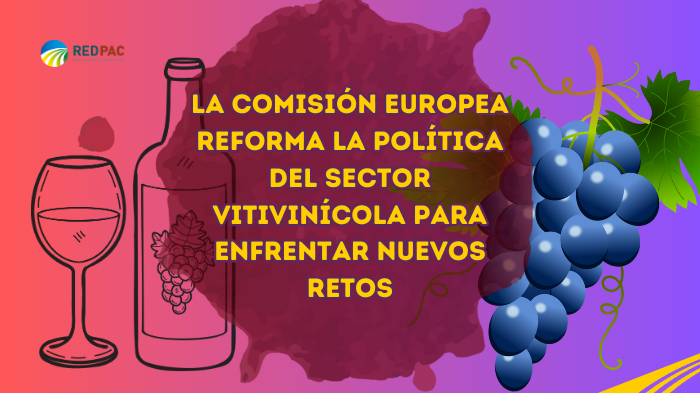
21 de April de 2025
Cambio climático y gestión de recursos naturales
Calidad y cadena alimentaria
Resiliencia y competitividad
The new framework seeks to adapt the wine sector to changes in the market, climate and consumer preferences.
- The new framework seeks to adapt the wine sector to changes in the market, climate and consumer preferences.
- It includes measures to control production, encourage innovation and sustainability, and promote wine tourism.
- The European wine sector accounts for 60% of the world's wine and is essential to the European rural economy.
The European Commission (EC) has presented a new package of measures aimed at ensuring the competitiveness and sustainability of the European wine sector in the coming decades. The reforms respond to a series of growing challenges such as climate change, declining wine consumption, new market trends, and the pressure of international competition.
These proposals, which stem from the recommendations of a High-Level Group on Wine Policy established by the European Commission, seek to modernize the policy framework governing wine in the European Union (EU) , introducing greater flexibility, incentives for innovation, and tools to better address climate and economic risks.
Key changes
The new framework includes strategic measures to align production with declining demand, foster sector resilience, and take advantage of new market opportunities:
- Control of excess production: Measures such as uprooting vineyards or green harvesting will be facilitated to prevent surpluses that destabilize the market.
- Greater flexibility in planting: Member States will be able to adapt vine planting and replanting permits more freely to their regional circumstances, allowing for more flexible investments by producers.
- Climate change support: EU aid for investments focused on climate adaptation and mitigation will be increased to 80%.
- Boosting innovation: the introduction of products such as dealcohol-free or low-alcohol wines will be facilitated, responding to new consumer demands.
- Clearer and more uniform labeling: Labeling standards will be harmonized across the EU, reducing costs for producers and making information easier for consumers.
- Promotion and wine tourism: The duration of promotional campaigns in third countries will be extended, and wine tourism will be encouraged, especially in rural areas associated with protected geographical indications .
Current context
Wine is not only an emblematic product of European culture, but also an economic pillar: it represents 60% of the value of global wine exports and occupies almost half of the global wine-growing area. Furthermore, it plays a fundamental role in the vitality of many rural regions, where it generates employment and protects the landscape and local traditions.
However, the sector is at a critical juncture. Wine consumption has fallen to its lowest level in 30 years , and preferences are shifting toward lighter, faster-drinking beverages. Added to this are the effects of climate change and geopolitical tensions, which are affecting both production and exports.
Background
Since the first common organization of the wine market Since its establishment in 1962, the EU has been adjusting its policy to the changing context. The most important reforms took place in 2008 and 2013, with the aim of modernizing the sector, reducing surpluses, and improving its global positioning.
The current proposal put forward by the Commission is the result of the work of the High Level Group on Wine Policy, which in 2004 produced a report with input from the 27 Member States and sector organizations. The conclusions pointed to the urgent need to adapt the tools of the Common Agricultural Policy. (PAC) to respond more quickly to current challenges. The priorities identified include:
- Improving the yield and planted area management system.
- Strengthening insurance and mutual funds against extreme weather events.
- The development of innovative and sustainable products.
- Strengthening market access through investments, promotion and direct sales,
Now, with this new update, Brussels seeks to prepare the wine sector for the coming decades, consolidating its role as an economic, social, and cultural engine of the European Union.









